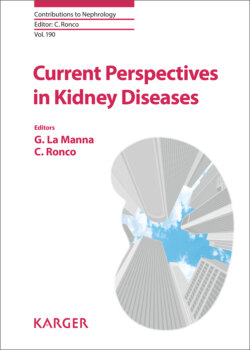Читать книгу Current Perspectives in Kidney Diseases - Группа авторов - Страница 33
На сайте Литреса книга снята с продажи.
Metabolic and Electrolyte Disarrangements Due to Citrate Anticoagulation
ОглавлениеDespite the reported problems that citrate may induce hypernatremia or hyponatremia, hypercalcemia or hypocalcemia, hypermagnesemia or hypomagnesemia, these complications are quite uncommon when there is strict adherence to the RCA protocols. In particular, hypernatremia is an infrequently observed complication associated with the use of hypertonic solutions without low-sodium concentration dialysate and/or replacement fluids. Calcium and magnesium imbalances might be caused by effluent losses in the form of citrate complexes not adequately corrected by systemic supplementation [8].
Impaired liver function, arterial hypoxia, and reduced tissue perfusion are described in the literature as risk factors for citrate accumulation [23]. Citrate is an intermediate of energy metabolism and is not toxic, but accumulation of it with consecutive reduction of iCa could decrease the cardiac contractility or cause arrhythmias, and symptoms of systemic ionized hypocalcemia. However, there is increasing evidence that at least impaired liver function need not be considered as an absolute contraindication for RCA [24]. Several studies have reported that RCA can be safely used even in this population [25–27].
